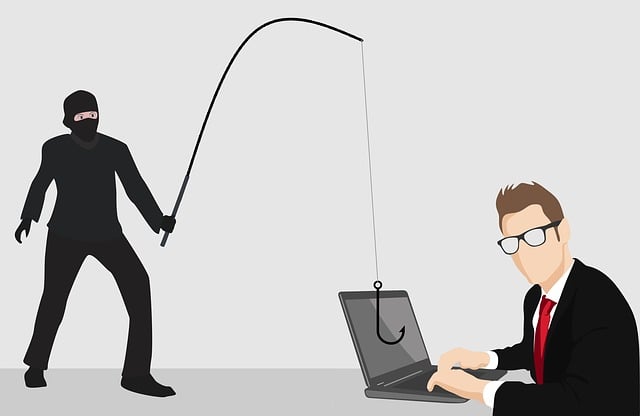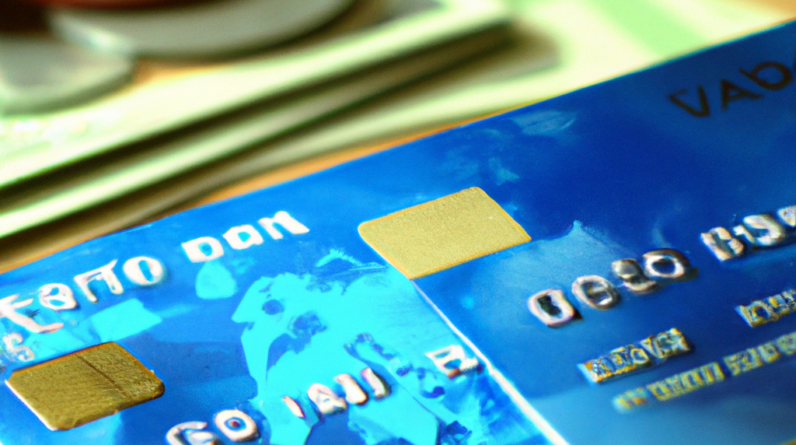
So, you’ve heard about credit relief scams, huh? Well, let me tell you, they can be a real headache. These scams prey on individuals who are already in financially vulnerable situations, promising to help them get out of debt quickly and easily. But don’t be fooled! In this article, you’ll learn all about the warning signs of credit relief scams, how to protect yourself from falling victim to them, and what legal options you have if you’ve already been scammed. Trust me, after reading this, you’ll be equipped with the knowledge and tools to navigate the confusing world of credit relief and avoid those sneaky scams.
Curious to know more? Well, you’re in luck because this article will provide you with all the information you need to protect yourself from credit relief scams. We’ll uncover the common tactics used by scammers, such as upfront fees, false promises, and high-pressure sales tactics. You’ll also learn how to spot the warning signs of a scam and what steps you can take to avoid becoming a victim. Whether you’re currently in debt or simply want to be prepared for any future financial challenges, this article is a must-read. So, get ready to arm yourself with knowledge and keep your hard-earned money safe from those credit relief scammers.
Credit Relief Scams
Credit relief scams have become increasingly common in recent years, targeting individuals struggling with debt and financial difficulties. These scams are designed to take advantage of vulnerable individuals by promising quick and easy solutions to their credit problems. Understanding how these scams work, identifying warning signs, and knowing how to protect yourself is crucial in order to avoid falling victim to these fraudulent schemes.
What are credit relief scams?
Credit relief scams refer to fraudulent activities that claim to provide relief from debt and financial hardships. These scams often target individuals who are desperate to find a way out of their financial struggles, offering false promises of debt elimination and financial freedom. However, the reality is that these scams only seek to exploit individuals and make their financial situation even worse.
How do credit relief scams work?
Credit relief scams work by presenting themselves as legitimate organizations or services that can help individuals alleviate their debt burden. They utilize various techniques and tactics to convince victims to pay upfront fees or disclose sensitive personal information, ultimately resulting in financial loss and potential identity theft.

This image is property of pixabay.com.
Types of credit relief scams
-
Debt consolidation schemes: Scammers may offer debt consolidation services that promise to combine all your debts into one manageable payment. However, these scammers often require upfront fees and fail to deliver on their promises, leaving you in a worse financial situation.
-
Debt negotiation and settlement scams: These scams claim to negotiate with your creditors on your behalf to reduce your debt. However, scammers often take upfront fees and fail to provide any substantial results, leaving you with even more debt.
-
Phony credit counseling services: Some scammers pose as credit counseling agencies, offering services to help you manage your debt. However, these fraudulent agencies may charge excessive fees, provide misleading advice, or even sell your personal information to third parties.
-
Fraudulent bankruptcy filings: Scammers may offer to file for bankruptcy on your behalf, claiming to eliminate your debt entirely. However, these fraudulent filings can have serious legal consequences and may lead to further financial hardships.
Warning Signs of Credit Relief Scams
To protect yourself from credit relief scams, it is important to be aware of the warning signs:
Promises of immediate debt elimination
Be wary of any company or individual who promises to eliminate your debt immediately. Legitimate credit relief programs take time and effort to achieve results, and there are no quick fixes to eliminate debt overnight.
Request for upfront fees
It is a red flag if a credit relief service demands upfront fees before providing any assistance. Legitimate organizations typically charge fees based on their results or provide services free of charge.
Unsolicited offers
If you receive unsolicited offers through phone calls, emails, or text messages claiming to provide credit relief, be cautious. Legitimate organizations do not typically solicit customers in this manner.
Pressure tactics
Scammers often use high-pressure tactics to create a sense of urgency and manipulate individuals into making hasty decisions. Legitimate credit relief programs will give you time to consider your options and will not pressure you into immediate action.

This image is property of pixabay.com.
Common Techniques Used in Credit Relief Scams
Here are some common techniques scammers use to deceive individuals seeking credit relief:
Debt consolidation schemes
Scammers may offer debt consolidation services that aim to combine all your debts into one monthly payment. However, they may charge excessive fees, fail to deliver on their promises, or even disappear with your money.
Debt negotiation and settlement scams
These scams claim to negotiate with your creditors to reduce your debt. However, scammers often charge upfront fees and provide little to no results, leaving you with more debt and financial difficulties.
Phony credit counseling services
Scammers may pose as credit counseling agencies, offering services to help you manage your debt. However, these fraudulent agencies often charge excessive fees or provide misleading advice, ultimately exacerbating your financial struggles.
Fraudulent bankruptcy filings
Some scammers offer to file for bankruptcy on your behalf, promising to eliminate your debt entirely. However, these filings can lead to serious legal consequences and may result in further financial hardships.
Consequences of Falling for Credit Relief Scams
Falling for credit relief scams can have severe consequences, including:
Financial loss
Victims of credit relief scams often lose money through upfront fees or payments to fraudulent organizations. This financial loss can further exacerbate their debt problems and financial struggles.
Negative impact on credit score
Scammers may fail to make payments to creditors as promised, leading to missed payments and a negative impact on your credit score. This can make it even more difficult to obtain credit or secure favorable loan terms in the future.
Legal consequences
Engaging in fraudulent activities, such as fraudulent bankruptcy filings, can result in serious legal consequences. Victims may face legal action, fines, or even imprisonment as a result of falling for these scams.
Identity theft risks
Scammers may request personal information, such as Social Security numbers or bank account details, under the guise of providing credit relief services. This information can be used for identity theft, putting victims at risk of financial and personal devastation.

This image is property of pixabay.com.
Protecting Yourself from Credit Relief Scams
To protect yourself from credit relief scams, follow these important steps:
Research and due diligence
Before engaging with any credit relief service, thoroughly research their credentials, reputation, and reviews. Check if they are accredited by reputable organizations and verify their legitimacy through sources like the Better Business Bureau.
Beware of unrealistic promises
Be skeptical of any service that promises quick and easy debt elimination. Legitimate credit relief programs require time, effort, and realistic expectations to achieve results.
Verify credentials and licenses
Ensure that any credit relief service you consider working with is properly licensed and accredited. Legitimate organizations will have credentials and licenses readily available upon request.
Consult with legitimate credit counseling agencies
Seek guidance from legitimate credit counseling agencies recognized by reputable organizations. These agencies can provide sound advice, negotiate with creditors on your behalf, and assist in developing a sensible debt repayment plan.
Reporting Credit Relief Scams
If you encounter a credit relief scam or believe you have been a victim, it is important to report the incident to the appropriate authorities and organizations. Here are some steps you can take:
Contacting your local authorities
Report the scam to your local police or consumer protection agency. Provide them with all relevant information, including any documentation or communication you have received from the scammer.
Reporting to consumer protection agencies
File a complaint with organizations like the Federal Trade Commission (FTC). These agencies track and investigate fraudulent activities, helping to protect consumers from falling victim to scams.
Filing complaints with relevant regulatory bodies
If the scam involves a licensed professional or organization, file a complaint with the relevant regulatory body overseeing their operations. This will help ensure that appropriate actions are taken to prevent further fraudulent activities.

Recovering from Credit Relief Scams
If you have fallen victim to a credit relief scam, take the following steps to recover and protect your financial well-being:
Contacting your financial institution
Notify your banks and credit card companies about the scam to prevent further unauthorized transactions. They can help you address any fraudulent charges and provide guidance on securing your accounts.
Freezing credit reports
Consider placing a freeze on your credit reports to prevent any new accounts or loans being opened in your name. This will add an extra layer of protection against potential identity theft.
Monitoring credit activity
Regularly monitor your credit reports for any suspicious activity or unauthorized accounts. Reporting any discrepancies to the relevant credit bureaus can help rectify any damage caused by the scam.
Seeking legal assistance
If the scam has resulted in significant financial loss or legal consequences, consult with a lawyer specializing in consumer protection or financial fraud. They can provide guidance on your rights, potential legal actions, and the steps needed to recover your losses.
Educating Others about Credit Relief Scams
To prevent others from falling victim to credit relief scams, consider taking the following actions:
Sharing experiences and stories
Share your own experiences or stories about credit relief scams to raise awareness among friends, family, and colleagues. This can help others recognize the warning signs and avoid falling victim to similar scams.
Raising awareness through social media
Utilize social media platforms to spread awareness about credit relief scams. Share tips, warning signs, and resources to protect others from falling victim to these fraudulent schemes.
Participating in community education initiatives
Collaborate with local organizations or community groups to organize educational sessions or workshops on credit relief scams. This can help empower individuals with the knowledge and tools they need to protect themselves and their loved ones.

Resources for Victims of Credit Relief Scams
If you have been a victim of a credit relief scam, there are resources available to help you recover and regain control of your financial situation:
Government agencies and helplines
Contact government agencies like the Federal Trade Commission (FTC) or local consumer protection agencies for assistance and guidance. They can provide valuable resources and support to victims of scams.
Non-profit organizations
Non-profit organizations, such as the National Foundation for Credit Counseling (NFCC), provide free or low-cost credit counseling services. They can help develop a realistic debt repayment plan and offer financial education resources.
Financial education programs
Many financial institutions and community organizations offer financial education programs designed to improve financial literacy and empower individuals with the knowledge needed to make informed financial decisions. Take advantage of these resources to avoid falling victim to scams in the future.
Conclusion
Credit relief scams prey on individuals in vulnerable financial situations, offering false promises of debt elimination and financial freedom. By understanding the warning signs, familiarizing yourself with common techniques used by scammers, and taking steps to protect yourself, you can avoid becoming a victim of these fraudulent schemes. Remember to report any suspicious activities to the appropriate authorities, and spread awareness to protect others from falling prey to credit relief scams. Be vigilant, cautious, and proactive in safeguarding your financial well-being.







